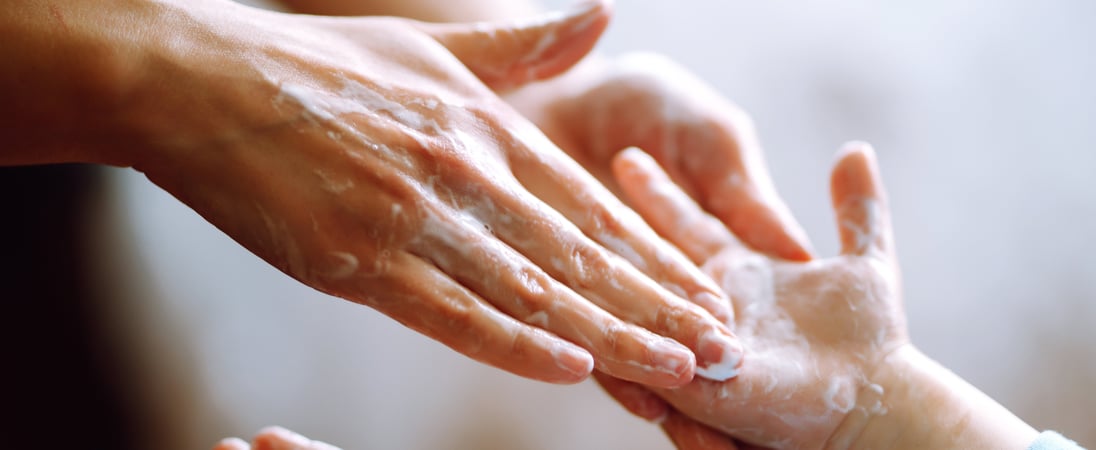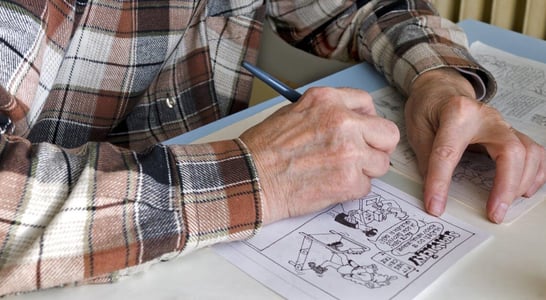
World Hand Hygiene Day
This day acts as a reminder to all healthcare workers and general citizens that every single person is empowered to prevent the spread of infection and disease through the simple practice of hand washing!
How to Celebrate World Hand Hygiene Day
This event offers a variety of simple ways to get involved in taking care of personal health and community health together. Get connected with the day in a few of these ways:
Wash Your Hands
As a first step to participating in World Hand Hygiene Day, just do the easiest thing and hop over to the sink to wash your hands with warm, soapy water. Get rid of those invisible germs and protect not only yourself but those around you!
Those who don’t have soap and water readily available can use hand sanitizer in the short term, then wash hands as soon as it becomes possible.
Brush Up on Hand Hygiene Protocol
Sure, most everyone knows that they should wash their hands. But some people, especially parents and teachers of small children, might need a reminder to help teach the basics to little ones for a lifetime of protection.
The Centers for Disease Control offers a guide to teaching handwashing as a family activity.
Sign Up for the Campaign
Healthcare facilities, hospital managers and others who work in community health can make a pledge to better hand hygiene by registering on the WHO website.
Making patient safety is the top priority and one of the easiest ways to do that is to prevent health-care associated illness (HAI) with proper training on and practicing hand hygiene.
Access Hand Hygiene Resources
Looking for posters, banners, web banners and more? Get access to a full toolkit of resources to celebrate in style and with helpful graphics through the WHO website.
History of World Hand Hygiene Day
While handwashing is something that comes as second nature to most adults in the modern world, it has only been a practice for less than two centuries!
In 1846, a Hungarian doctor, Ignaz Semmelweis, noticed that women delivering babies were less likely to become ill when doctors did not “carry” an infection into the maternity ward from other places.
Not long after this, Louis Pasteur discovered the invisible germ, and it changed everything. Over the years, hand hygiene has become a standard practice not only in hospitals and medical centers but everywhere!
The spread of disease has been significantly reduced through the use of handwashing practices, and that’s why World Hand Hygiene Day was founded.
The inaugural celebration of this event was brought about in 2009 by the World Health Organization (WHO). This initiative was part of a global campaign called “SAVE LIVES: Clean Your Hands”.
Since then the event has been embraced by governments, organizations and healthcare facilities all over the globe!
World Hand Hygiene Day FAQs
What inspired ancient handwashing traditions in different cultures?
In ancient Babylon, people believed washing hands before meals brought good fortune.
The Talmud also encouraged handwashing as part of religious rituals. In ancient Japan, the practice of “temizu” involved cleansing hands at shrines to ensure spiritual purity.
These traditions connected hygiene with health, luck, and spirituality.
What’s the strangest fact about germs on our hands?
Studies show that public elevator buttons and gas pump handles often have more germs than toilet seats.
Common items like ATMs and smartphones also harbor surprising amounts of bacteria. These findings highlight the importance of regular handwashing in unexpected situations.
How do festivals promote hand hygiene?
In India, some health organizations have used Holi, the festival of colors, to teach handwashing.
They demonstrate proper washing techniques during celebrations when people gather in large numbers. This creative approach ties hygiene lessons to joyful cultural events.
What role did hand hygiene play in early medical discoveries?
Dr. Ignaz Semmelweis, known as the “Father of Infection Control,” linked handwashing to lower mortality rates in 19th-century hospitals.
His findings were initially dismissed but later revolutionized medical practices. This discovery set the foundation for modern hand hygiene protocols.
Are there fun ways people celebrate World Hand Hygiene Day?
Some schools organize art contests where children draw germs to learn about them visually.
In France, hospitals host “hand hygiene fairs” with interactive booths and activities. These events engage communities and make hygiene awareness lively and memorable.
Why do some cultures emphasize handwashing after meals?
In Ethiopian culture, meals are often communal, eaten with hands instead of utensils.
Washing hands before and after eating is essential to maintain health and respect for others. Such traditions showcase how cultural norms intertwine with practical hygiene.
What common misconceptions exist about hand sanitizers?
Many people think hand sanitizers replace soap and water. While they’re convenient, sanitizers can’t remove dirt or all types of germs. Soap and water remain the gold standard, especially when hands are visibly dirty.
How do modern gadgets help monitor hand hygiene?
Hospitals now use smart sensors to track if staff wash their hands when entering rooms.
Some even issue reminders or track compliance rates. This technology helps improve hygiene practices without disrupting daily routines.
What do traditional stories say about hand cleanliness?
In Irish folklore, washing hands at sacred wells was believed to protect against curses and bad luck.
Similarly, some African tales connect handwashing to warding off evil spirits. These stories link cleanliness with supernatural safety.
Why is May 5th significant beyond hand hygiene?
May 5th also marks International Midwives’ Day, celebrating essential healthcare workers.
The dual focus highlights the critical connection between hygiene and safer healthcare practices. Together, these observances stress teamwork in improving global health.
Also on ...
View all holidaysNational Astronaut Day
Blast off into an out-of-this-world celebration! Learn about space, astronauts, and explore the cosmos. It's time to reach for the stars!
National Cartoonists Day
Take a walk down memory lane by revisiting the beloved, charming, often bizarre cartoons of your childhood like Calvin and Hobbes, or discover new ones.
World Asthma Day
Raise awareness and help improve the lives of the many people around the world who suffer from asthma, a common but potentially life-threatening ailment.
International Midwives’ Day
Doctors and hospitals are a recent development for birthing. In the past, experienced women called midwives kept new mothers and babies safe during birth.
We think you may also like...
National Immunization Awareness Month
Guarding against preventable diseases, this medical shield protects lives, safeguards communities, and honors the value of health and well-being.
National Healthy Skin Month
Preserving skin health ensures longevity, radiance, and shields against environmental stressors for a healthy complexion.







